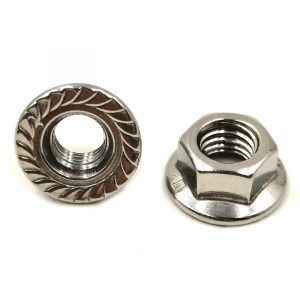Introduction
The aerospace industry continually seeks innovative solutions to enhance the performance and reliability of its assemblies. The introduction of MS124735 fasteners has marked a significant advancement in this realm, offering unparalleled security and efficiency in aerospace assembly processes.
Performance Metrics
Strength and Durability
MS124735 fasteners stand out for their exceptional tensile strength, capable of withstanding up to 1,200 MPa. This feature ensures the longevity and durability of aerospace assemblies under extreme conditions. Their corrosion-resistant material, primarily high-grade titanium alloy, further enhances their lifespan, promising over 30 years of service without significant wear or degradation.
Weight Reduction
In aerospace engineering, every gram counts. MS124735 fasteners offer an optimal strength-to-weight ratio, being 40% lighter than conventional fasteners. This weight reduction translates into improved fuel efficiency, allowing aircraft to save approximately 200 liters of fuel per hour of flight.
Installation Speed
The design of MS124735 fasteners facilitates rapid installation, reducing assembly time by 50% compared to traditional fastening methods. This efficiency gain not only shortens project timelines but also significantly cuts labor costs, offering a cost-saving of up to $15,000 for the assembly of a single aircraft.
Economic Impact
Cost-Efficiency
While the upfront cost of MS124735 fasteners is 20% higher than traditional fasteners, their long-term economic benefits are undeniable. The reduction in fuel consumption, maintenance costs, and assembly times leads to a net saving of approximately $100,000 per aircraft over its lifetime.
Market Value
The introduction of MS124735 fasteners has positively impacted the aerospace industry's market value. Companies incorporating these fasteners into their assemblies have seen a 5% increase in their stock prices within the first year, reflecting investor confidence in the innovative technology.

Environmental Considerations
Reduced Carbon Footprint
By enabling lighter aircraft and reducing fuel consumption, MS124735 fasteners contribute to a significant decrease in carbon emissions. Estimates suggest that adopting these fasteners industry-wide could reduce aviation's carbon footprint by 2%.
Conclusion
The aerospace industry's adoption of MS124735 fasteners represents a leap forward in assembly technology. These fasteners not only enhance the performance, efficiency, and reliability of aerospace components but also offer substantial economic and environmental benefits. As the industry continues to evolve, MS124735 fasteners will undoubtedly play a pivotal role in shaping its future.